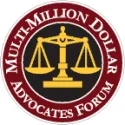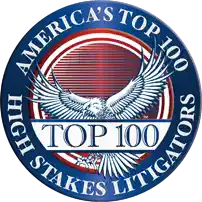Aggressive Driving Accident in Philadelphia
Many drivers cannot imagine driving without shouting at other motorists, cursing, honking, and showing rude gestures. For them, it’s considered “normal” to show signs of aggression when behind the wheel. And while many Americans call it “aggressive driving,” from a legal standpoint, this is not an accurate description of the motorist’s behavior.
Our Philadelphia Aggressive Driving Accident Attorney at The Law Offices of Greg Prosmushkin, P.C., explains that in legal terms, “aggressive driving” refers to the “operation of a motor vehicle in any manner that endangers, or is likely to endanger persons or property,” according to the National Highway Traffic Safety Administration (NHTSA).
In recent years, the issue of aggressive driving has come under increased scrutiny, which prompted lawmakers in many states to pass state statutes regulating any behavior that endangers the safety of other motorists on the road.
What constitutes aggressive driving in Pennsylvania?
“If cursing, honking, and showing the middle finger aren’t Aggressive Driving, then what is?” you may be wondering. Under Pennsylvania law, the following behaviors constitute aggressive driving in our state:
- Speeding (exceeding the speed limit)
- Disregarding traffic signals
- Running Red Lights or otherwise violating traffic control measures
- Changing lanes or swerving recklessly or when such a maneuver is not safe to execute
- Tailgating or following too closely (failure to maintain a safe distance between vehicles)
- Cutting off other vehicles
- Passing a vehicle on the right or overtaking another vehicle unsafely
- Failure to yield the right of way
- Failure to stop or pull over for emergency vehicles
- Wrong-way driving or driving in the wrong lane
- Making “rolling stops.”
- Stopping suddenly in front of other vehicles
- Reckless Driving
- Engaging in offensive or rude behavior toward other motorists
In some states, driving under alcohol or drugs may also result in aggressive driving charges.
When does aggressive driving become illegal conduct?
“But when does aggressive driving cross the line and can be considered illegal?” you may ask. Let our experienced Aggressive Driving Accident Attorney in Philadelphia explain. A motorist can be held responsible for driving aggressively in any of the following scenarios:
- The aggressive behavior is a violation of Traffic laws in Pennsylvania
- How the motorist was driving can be considered negligent or reckless (or, in other words, it placed other motorists at risk of serious harm, bodily injury, or death);
- The driver’s behavior resulted in bodily injury, Death, or Property Damage
- The driver’s behavior involved intentional actions.
The police and prosecutor will examine these four factors when determining whether a driver should face aggressive driving charges. Suppose a driver is found guilty of aggressive driving in Philadelphia or elsewhere in Pennsylvania. In that case, he or she will face legal consequences.
In many cases, the victims are entitled to punitive damages in addition to compensatory damages in the form of medical expenses, loss of income, pain, suffering, and other damages.
Penalties for aggressive driving in Pennsylvania
In Pennsylvania, the severity of penalties for aggressive driving depends on several factors, including the severity of the offense, prior Criminal Charges, whether the driver is on probation, whether serious bodily injury or death was involved, and whether the accident involved drunk or drugged driving. Our Philadelphia Aggressive Driving Accident Lawyer warns that this type of illegal conduct can lead to Misdemeanor Criminal Charges in Pennsylvania, with the aggressive driver facing such penalties as up to 90 days in jail and fines of up to $1,000.
If you have been injured in a Car Accident involving an aggressive or reckless driver, do not hesitate to speak to our Philadelphia Personal Injury Lawyers at The Law Offices of Greg Prosmushkin, P.C., to evaluate your damages. Let our attorneys help you maximize your compensation and receive punitive damages. Call our offices at (215)-799-9990 for a free case evaluation.






